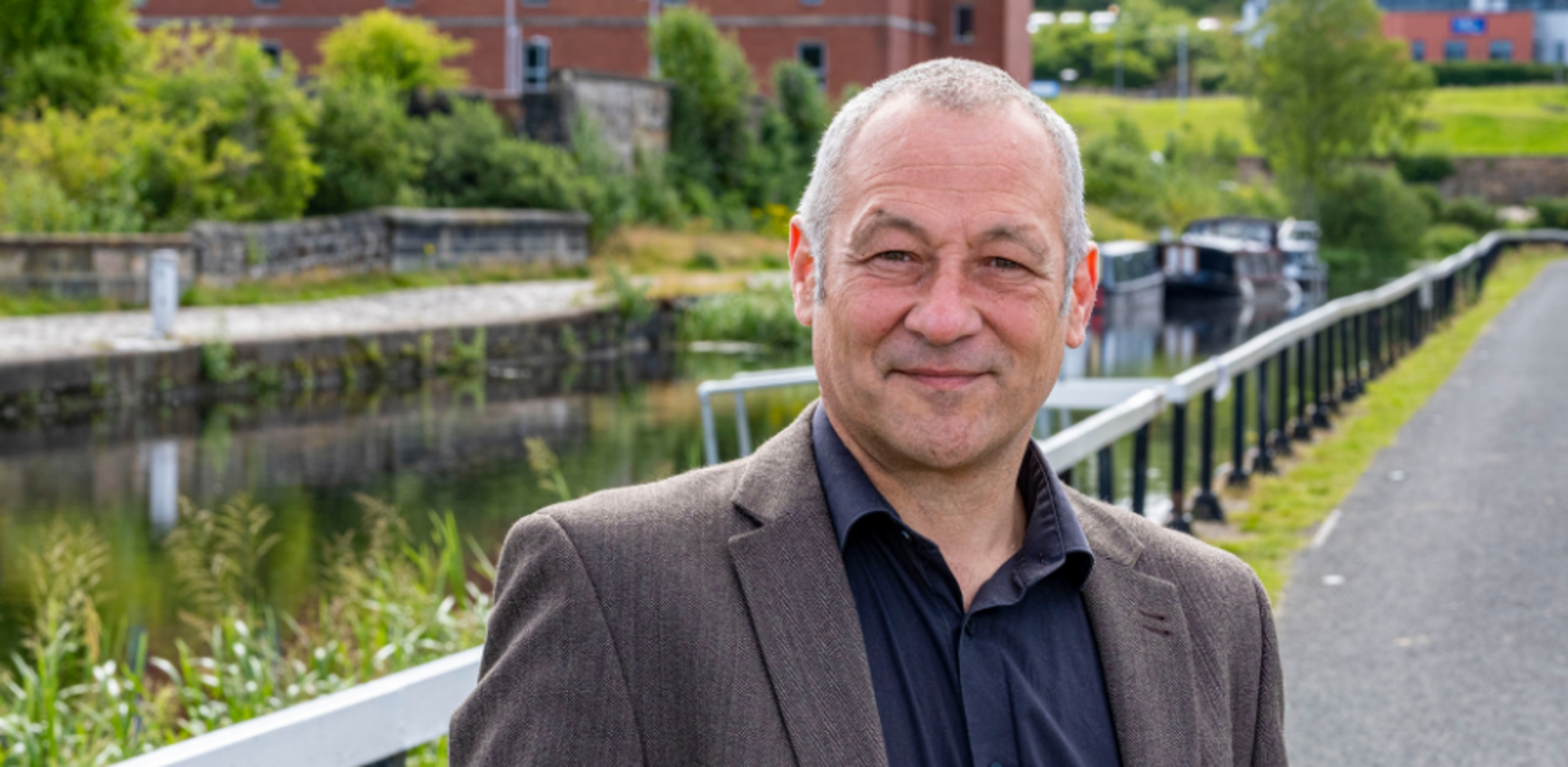GCU health scientist at forefront of COP26 ‘Canals Do Net Zero’ event

A global health expert from Glasgow Caledonian University will play a key role in a major COP26 event entitled ‘Canals Do Net Zero: Re-imagining 18th century infrastructure to address flood risk, stimulate investment and tackle health inequalities’.
Professor of Health Behaviour Dynamics Sebastien Chastin is a key speaker at the climate summit event taking place on Wednesday 10 November in Scotland’s Climate Ambition Zone.
He will be joined by Patrick Harvie MSP, Minister for Zero Carbon Buildings, Active Travel and Tenants' Rights; Glasgow City Council Leader Councillor Susan Aitken; Scottish Canals CEO Catherine Topley; Scottish Water Service Strategy General Manager Karen Dee; and Gathering Ground Director Vanessa Gilpin.
The event is a virtual live-streamed and in-person TedX-style panel discussion celebrating the diversification of the Forth and Clyde Canal in North Glasgow, with a particular focus on Europe’s first smart canal in the city and the launch of the first housing connection to the smart canal system.
Officially named the North Glasgow Integrated Water Management System, the smart canal uses technology to reduce flood risks and the impact of climate change. It also unlocks 110 hectares across the city for investment, regeneration and development, helping to tackle health inequalities in some of the most deprived areas.
Professor Chastin, a key researcher in the School of Health and Life Sciences' Research Centre for Health (ReaCH), said: “The Glasgow smart canal is a great example of how by working across sectors and re-purposing old assets we can derive substantial co-benefits from climate adaptation or mitigation measures.
“The smart canal’s impact on health is substantial and it managed to achieve effects that many other policies or actions have failed to deliver in one of the most deprived and disadvantaged areas of Europe. It is very powerful but far from optimum and we are under tremendous pressure to deliver quickly and effectively.
“We could achieve much stronger results if we were more strongly led by science to plan, evaluate and monitor climate actions. We need to have a whole system approach to understand better what cooperation is needed and how to deliver effective and optimal results through evidence-based co-creation.”
Professor Chastin, a polymath scientist who researches the influence of people, places and systems behaviour on human and planetary health, also holds professorial chairs at Ghent University in Belgium and Finland's Jyvaskyla University.
In 2020 he was recognised for being the world’s top 1% most cited researcher in the field of health and social sciences. He has served as expert on numerous global policy publications, including the 2020 WHO Global Physical Activity Guidelines.
Last year a ground-breaking, global first study led by Professor Chastin, in partnership with Scottish Canals, concluded that regeneration of canals can improve community health.
The study, which has since been recognised by the World Economic Forum, was carried out in one of Europe’s most deprived areas along the Forth and Clyde Canal and revealed a faster rate of decline in mortality rate in urban areas close to canals that have undergone major transformation and regeneration, compared to areas further away with an incredible 3% reduction since 2002 among residents living within 500m of the canal.
Find out more about GCU's COP26 activity - www.gcu.ac.uk/cop26
